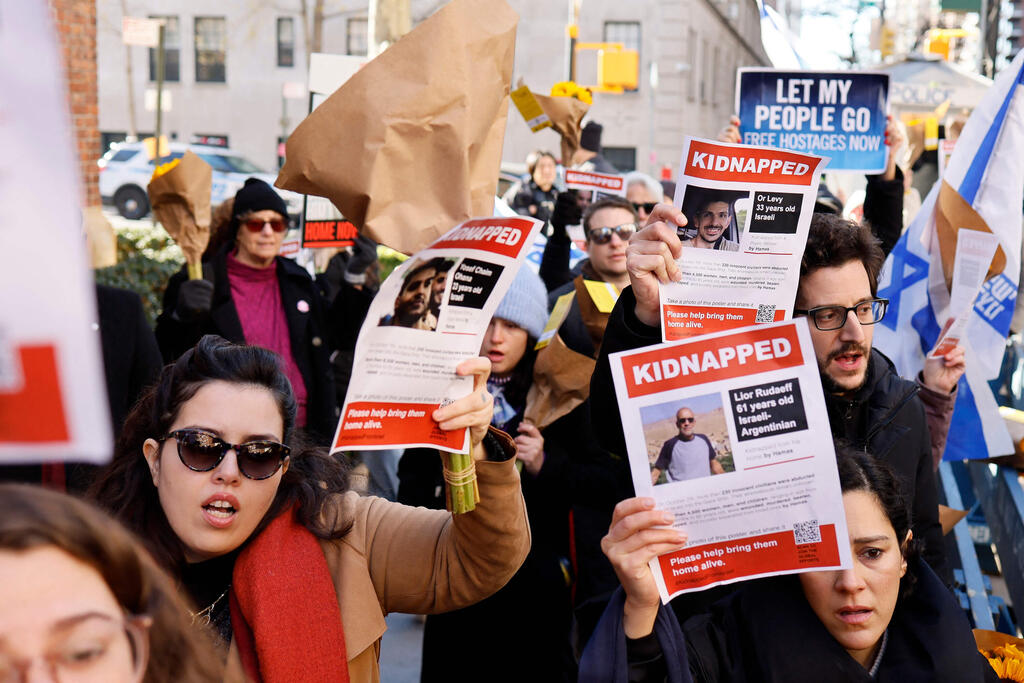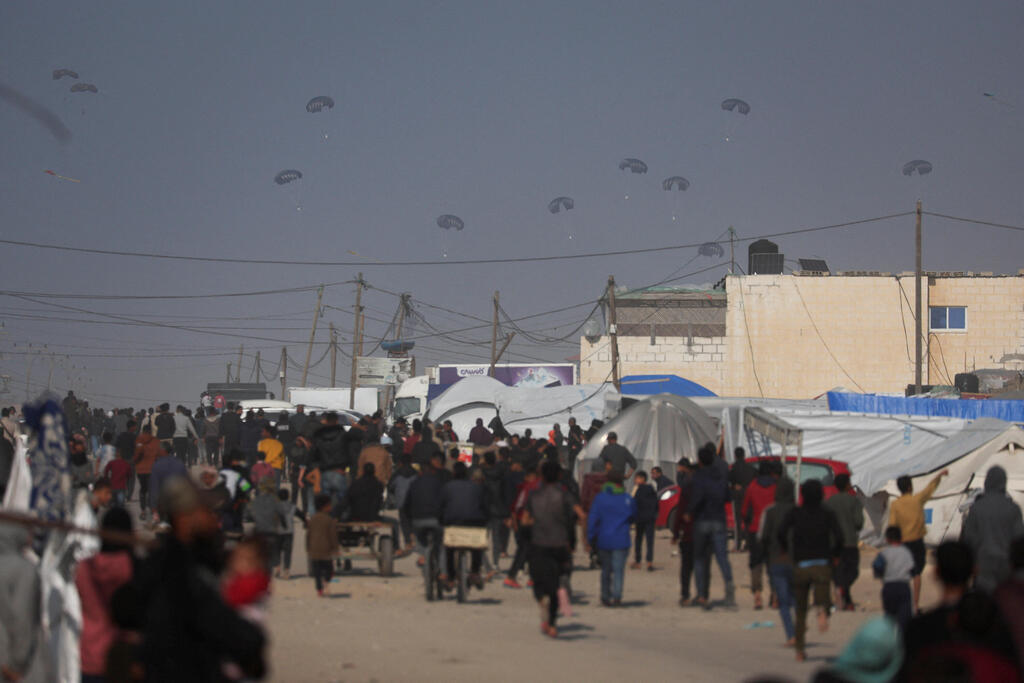Getting your Trinity Audio player ready...
At the Paris summit, Israel agreed that it would free 404 security detainees in a swap for 40 individuals held captive, with an average exchange rate of 10 security prisoners for each hostage returned. The proposed deal, still pending Hamas' approval, includes the release of seven women previously part of an initial exchange agreement, with 21 prisoners to be freed in return (three prisoners for each woman).
Read more:
Additionally, the exchange will see the liberation of 15 men over the age of 50 in exchange for 90 prisoners (six prisoners for each older man), 13 ill individuals for 156 prisoners (12 prisoners for each sick captive released), and five female soldiers for 90 prisoners, which includes 15 convicted murderers with severe sentences. The deal also involves the release of 47 prisoners who were re-arrested after being freed in the Gilad Shalit exchange due to terrorist activities.
Matthew Miller, a spokesperson for the U.S. State Department, commented on the ongoing negotiations for the prisoner exchange, telling reporters that the U.S. is actively working to finalize the deal. He expressed optimism about the possibility of reaching an agreement but highlighted that final consent from Hamas is necessary. Miller noted progress in the talks but did not provide specifics on the advancements made.
2 View gallery


Protesting in New York
(Photo: Michael M. Santiago / GETTY IMAGES NORTH AMERICA / AFP)
Hamas sources have told Saudi publication Alsharq Al-Awsat that the current proposal is unsatisfactory and requires amendments. They acknowledged progress but also said that gaps exist. The sources suggested that while the prisoner issue could be resolved, the withdrawal from Gaza and the return of Gazans to the northern part of the Strip are obstacles in reaching an initial agreement. They indicated that a deal is not imminent unless the IDF fully withdraws from central Gaza, clears the Netzarim axis that divides Gaza in half, and allows residents to return.
According to Reuters, Israel has also agreed to significantly increase humanitarian aid to Gaza, allowing 500 trucks to enter daily. Plans include the entry of 200,000 tents for temporary housing and the construction of 60,000 homes. Israel will permit international entities to immediately start rebuilding hospitals in Gaza and facilitate the entry of essential equipment. Additionally, Israel will enable the import of heavy machinery to remove debris in the Strip. In Paris, Israel agreed to cease aerial intelligence collection over Gaza and to allow a phased return of non-draft age residents to northern Gaza.
Huge gaps remain
Miller's remarks followed a statement by U.S. President Joe Biden, who on Monday night expressed his hope for a cease-fire in the Gaza Strip in the next week. "My national security adviser told me that we are close. We are close, but it's not over yet," Biden said.
These comments were made by Biden while he was holding an ice cream cone upon his departure from the NBC studios in New York where he appeared on "Late Night with Seth Meyers." During his exit, pro-Palestinian protesters, members of the Jewish Voice for Peace movement, occupied the lobby of the building for an extended period until law enforcement arrived. The demonstrators urged Biden to "stop supplying weapons for mass slaughter" and to "end the siege on Gaza now."
In addition, Biden disclosed that Israel had consented to a cease-fire during the holy Muslim month of Ramadan, from March 10 to April 9, to facilitate the release of the hostages. While he did not explicitly call for an end to hostilities, he indicated that Israel had not ruled out a ground operation in Rafah, noting that Israel had promised to relocate the displaced population prior to taking action.
President Biden
(Video: C-Span)
Responding to Biden's statements, a source from Hamas spoke to Reuters Tuesday morning, claiming that Biden's optimistic outlook was premature and not aligned with the actual conditions on the ground. "There are still large gaps that need to be bridged before there is a cease-fire," the source asserted. Meanwhile, Israeli officials on Tuesday morning expressed confusion over the president's confidence, stating they are uncertain "what the American president's optimism is based on." ABC News also reported that Israeli Prime Minister Benjamin Netanyahu was "surprised" by Biden's declaration.
Sources familiar with the matter say that the U.S. is doing everything in its power to stop the war and to try to reach a normalization agreement between Israel and Saudi Arabia. The sharpening of American policy against the settlements - including sanctions against extremist settlers - is also intended to show Saudi Arabia and the moderate states that the U.S. is fighting extremism and does not allow Israel to do as it pleases. The Americans are also pressing for the prisoner exchange deal to come into effect before Ramadan, fearing escalation during this period and the expansion of the war to other fronts.
The Americans want to extend the cease-fire for additional reasons: They want to use the calm in Gaza to promote their political arrangement between Israel and Lebanon and to prevent a war with Hezbollah. However, Israel has announced that, during the cease-fire in Gaza, it will not refrain from acting against Hezbollah, and it seems that it is even increasing pressure on the terrorist organization to force it to agree to stay about 6 miles away from the border.






